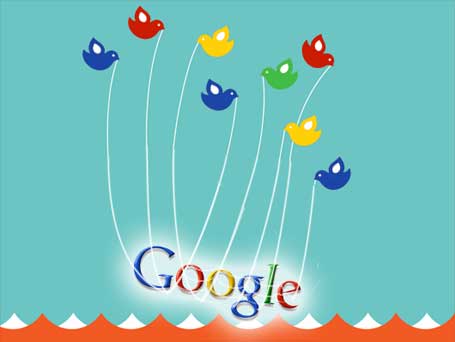
Robert Scoble, um dos mais influentes bloggers de sempre, comunicou no inicio da sua mudança de todas as outras redes para Google Plus, que ele iria apostar tudo no novo serviço do Google pois Google Plus era a maior aposta da gigante de search – tudo ou nada dizia ele. E pessoalmente, acredito que este é o momento decisivo para a Google.
Mas as noticias não podiam ser piores. Se por um lado, Google continua a desligar as suas tentativas falhadas, incluindo Google Buzz, Jaiku e Google Labs, os número apresentados pela Chitika demonstram que Google Plus não conseguiu sangrar.

Os dados demonstram que no dia em que Google lançou a sua rede social para o publico (20 de Setembro), o trafego explodiu – 1.200% nos primeiros dias. Mas pouco depois, o trafego caiu 60%. Nem o maior crescimento de sempre ajudou o serviço a sangrar – é que a maioria não conseguiu ver o seu valor acrescido.
Na realidade, quando os próprios gestores de Google não utilizam o serviço, como pode Google esperar que o publico o utilize? A semana passada, um memorando interno foi publicado sem querer, demonstrando que nem os próprios engenheiros de Google percebem (ou estão atentos) como se deve utilizar o Google Plus. Mas o que saiu nesse memorando interno diz mais sobre o futuro de Google do que qualquer outra analise.
Eis o que Steve Yegge teve a dizer sobre a sua empresa:
- “Google+ is a prime example of our complete failure to understand platforms from the very highest levels of executive leadership (hi Larry, Sergey, Eric, Vic, howdy howdy) down to the very lowest leaf workers (hey yo). We all don’t get it.”
- “The Google+ platform is a pathetic afterthought. We had no API at all at launch, and last I checked, we had one measly API call.”
- “Google+ is a knee-jerk reaction, a study in short-term thinking, predicated on the incorrect notion that Facebook is successful because they built a great product.”
- “Our Google+ team took a look at the aftermarket and said: “Gosh, it looks like we need some games. Let’s go contract someone to, um, write some games for us.” Do you begin to see how incredibly wrong that thinking is now?”
- “It’s incredibly frigging obvious. Except we’re not doing it. We don’t get Platforms, and we don’t get Accessibility. The two are basically the same thing, because platforms solve accessibility. A platform is accessibility.
- “Amazon gets it. Amazon’s AWS (aws.amazon.com) is incredible. Just go look at it. Click around. It’s embarrassing.”
- “So yeah, Microsoft gets it… “
- “Apple gets it, obviously. They’ve made some fundamentally non-open choices, particularly around their mobile platform. But they understand accessibility and they understand the power of third-party development and they eat their dogfood.”
- “Facebook gets it. That’s what really worries me. That’s what got me off my lazy butt to write this thing.”
- “After you’ve marveled at the platform offerings of Microsoft and Amazon, and Facebook I guess, head over to developers.google.com and browse a little. Pretty big difference, eh? It’s like what your fifth-grade nephew might mock up…”
- “This is a cultural thing. What we have going on internally is basically a war, with the underdog minority Platformers fighting a more or less losing battle against the Mighty Funded Confident Producters.”
- “And so we wind up with a browser that doesn’t let you set the default font size. Talk about an affront to Accessibility… Fuck You if you’re blind or deaf or whatever. Hit Ctrl-+ on every single page visit for the rest of your life.”
- “I’m not saying it’s too late for us, but the longer we wait, the closer we get to being Too Late.”
Será que alguma coisa irá mudar – suficientemente grande para alterar o rumo de Google – mais que provável que a resposta seja não.






[…] no interesse de claridade.Este exemplo, como o da Google e o seu colaborador Steve Yegge, que abertamente criticou, de forma construtiva, o que está mal com Google, demonstram duas importantes tendências. A […]